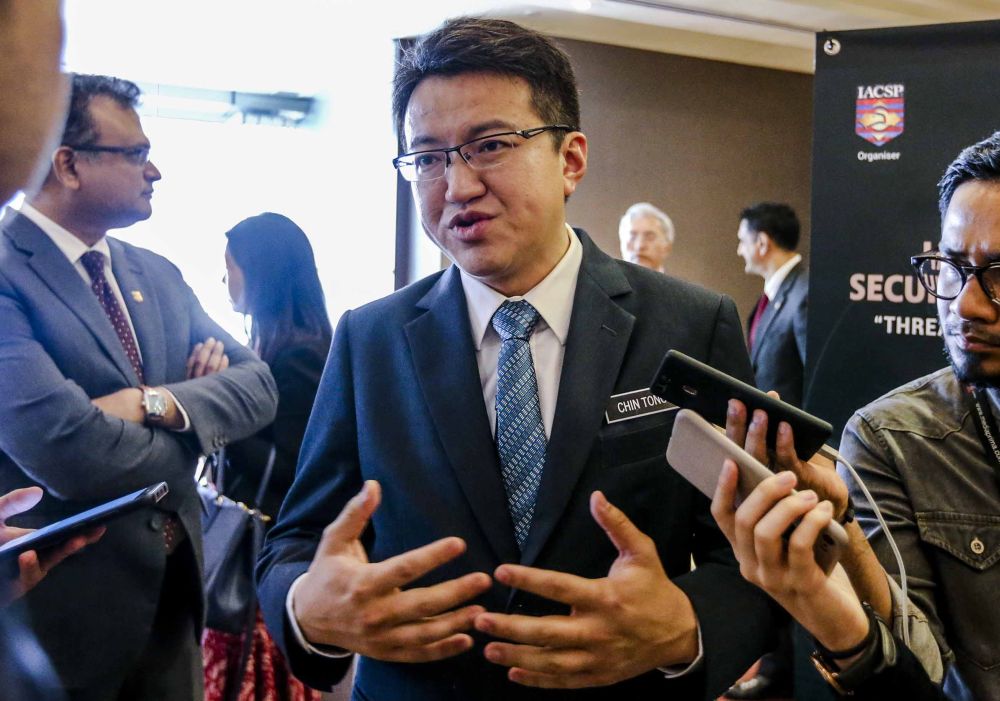KUALA LUMPUR, Dec 3 ― Former defence minister Datuk Seri Hishammuddin Hussein did not seek Cabinet approval for the deployment of Malaysian troops and military assets to assist the Arab Alliance's soldiers in Yemen during Ops Yemen II, said Senator Liew Chin Tong.
The Deputy Defence Minister told the Dewan Rakyat today during Question Time, that Hishammuddin did not follow standard operating procedure on deploying Malaysian troops in foreign conflict areas.
“We were not involved in combatant activities but we gave logistic support to the Arab Alliance military. From a SOP standpoint, I was made to understand that the previous defence minister did not obtain Cabinet approval for Ops Yemen II.
“There was no Cabinet decision to approve the troop movements for Ops Yemen II,” said Liew adding that this decision was also contrary to Malaysia's neutral stance on foreign conflicts where it will only get involve in such situations through the United Nations.
Former youth and sports minister Khairy Jamaluddin confirmed Liew's allegations saying that the Cabinet was never informed of the second phase of the Yemen operations.
“There's a difference between being involved in tactical operations and logistical support. If they were not involved in tactical operations, this means they were not combatants.
“However, I would like to confirm what the minister said earlier that the Cabinet was not informed regarding Phase Two (of Ops Yemen). In fact, I've been closely following Cabinet decision (on this matter) because it is a deployment of our military assets,” said the Rembau MP.
On April 6, 2015, the Malaysian military had deployed 26 officers, 16 rank-and-file troops and two C130 to Riyadh Saudi Arabia under Ops Yemen I. Its purpose was to evacuate Malaysian citizens from war-torn Yemen. This had received Cabinet approval.
However, the operation was extended from June 11, 2015 to September 4, 2018 under Ops Yemen II which saw 27 officers and 62 rank-and-file troops being deployed on three-months rotation to support the Arab Alliance's military operations.
Malaysia does not have any military agreement with Saudi Arabia to place its troops there. It was the Pakatan Harapan government that decided to end Ops Yemen II.
“The troops were deployed on a three month rotation period in Riyadh and were involved in 12 series of mission. They assisted the Arab Alliance logistically and flew equipments, bullets and explosives in Saudi Arabia airspace.
“They did not fly in the conflict zones,” said Liew.
The second phase of Ops Yemen had cost the nation RM14.6 million for the 12 flight missions and roughly RM1.5 million per three month rotation.
Liew also told the Lower House that in 2016 the Royal Malaysian Air Force (TUDM) had requested to pull the troops back home due to high operational and maintenance costs.
However, then Chief of the Defence Forces (General Tan Sri Zulkifeli Mohd Zin) and Hishammuddin denied the request.
Later, Khairy also asked Liew on whether or not Malaysia's involvement with the Arab Alliance had borne any fruit, seeing that former prime minister Datuk Seri Najib Razak and the former defence minister had said that Saudi Arabia would offset the deployment with their own military surplus.
“The former prime minister and defence minister had once raised during the original deployment and when the bilateral relationship between Saudi Arabia and Malaysia was being improved upon was that there was going to be an offset.
“We would purchase jet fighters, helicopters and Saudi Arabia's surplus defence assets as an offset to show their appreciation of Malaysian support.
Liew said he was not uncertain but as far as he knows no such “offset” actually took place.
Currently, around 700 Malaysian citizens are still in Yemen.
Meanwhile, Tanjung Malim MP Chang Lih Kang requested the government to set up a thorough investigation on Ops Yemen II and take strict action against those responsible.
“This is a shocking revelation because all this while, the previous administration had told us that the Armed Forces in Riyadh were only involved in evacuation missions.
“But the reply by the Defence Ministry today proved otherwise,” he told reporters in Parliament.
Chang said according to the Protocols Additional to the Geneva Conventions, members of the Armed Forces of a party to a conflict (other than medical personnel and chaplains) are combatants.
“So it is clear that Armed Forces troops involved in logistical operations carrying ammunition, spare parts and explosives for the Arab Alliance are combatants,” he said.
He said Armed Forces personnel involved in “combat” on foreign soil without a mandate from the United Nations and knowledge of Malaysians was a grave matter.



















